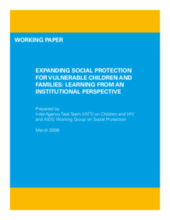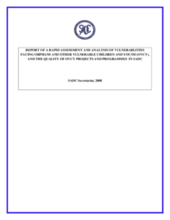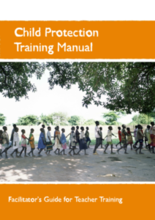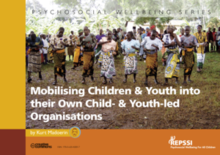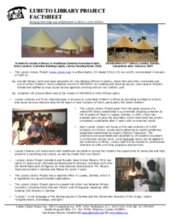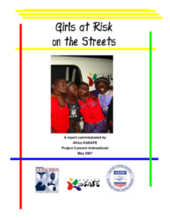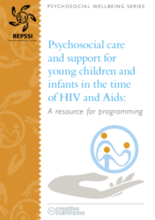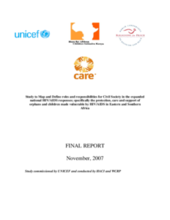Displaying 331 - 340 of 416
Examines the institutional challenges in implementing national social protection programmes
This study sought to assess, analyse and inform the different forms of vulnerabilities affecting children and youth, and their effects and existing strategies and programmes addressing the challenges and vulnerabilities facing orphans, vulnerable children and youth (OVCY) in the Southern Africa Development Community (SADC) region. The study also sought to propose recommendations for improvement, and development of minimum standards for OVCY and the finalisation of the SADC OVCY Strategic Framework.
A guide for training teachers in Southern Sudan on identifying, responding and safeguarding children from abuse, exploitation and violence. It provides guidance for an in-dept 5-day protection course, as well as a 1-day refresher course.
A handbook that identifies and addresses issues of child protection in education in Southern Sudan, and mobilizes communities into action to make schools protective and nurturing learning environments.
An overview of the development and benefits of child and youth-led organizations across Tanzania’s Kagera region, primarily for children who have lost one or both parents.
The Lubuto Library Project seeks to fill an important gap in services to vulnerable children in Africa by providing a bridge to schools and social services otherwise beyond their reach.
A report that identifies gaps and provides recommendations for protecting and supporting girls living on the streets. It provides models of good practices from Ghana, Kenya and Zimbabwe.
Clear programme guidance on psychosocial support, with a special focus on infants and young children. Excellent explanation of psychosocial support models.
This study commissioned by UNICEF, Hope for African Children Initiative (HACI), and World Conference on Religions and Peace (WCRP) maps and defines roles and responsibilities for Civil Society in the expanded national HIV/AIDS responses. The report pays particular attention to the protection, care and support of orphans and children made vulnerable by HIV and AIDS in Eastern and Southern Africa.
Investigates the AIDS mitigation impacts of several large social cash transfer programmes in Africa. Emphasis on investigating non-specific targeting (of poor families) versus targeting specific to households affected by AIDS.

